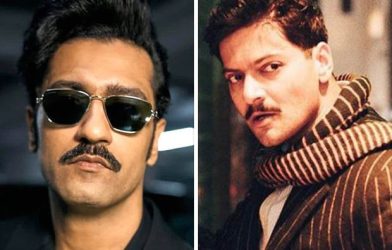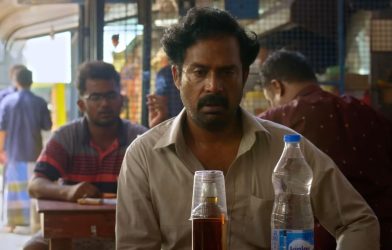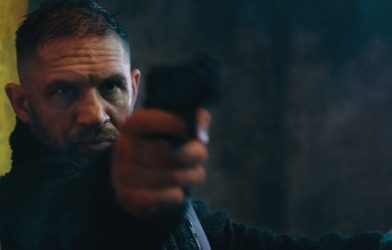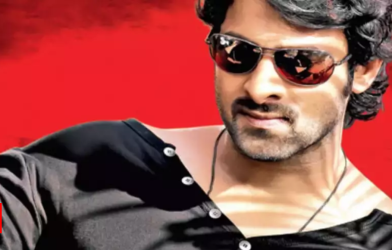
(Credit: Paramount)
It’s entirely subjective as to which one can be named superior, but what isn’t up for debate is that the 1980s and 1990s were the two greatest decades for action cinema in terms of both quantity and quality.
The latter decade delivered everything from 1990’s The Hunt for Red October to 1999’s The Matrix, by way of Terminator 2: Judgement Day, Hard Boiled, Speed, The Rock, Face/Off, Air Force One, and countless more in between, with high concepts becoming the order of the day.
There’s so many spectacular action flicks to have emerged during that fruitful period that many of them ended up slipping through the cracks. There’s no shame in that when not every single gun-toting and explosive cinematic escapade was destined to reach untold heights, but it’s only fair to shine a light on some lesser-heralded gems.
The overwhelming majority of the following ten flicks were box office disasters, but the recurring thread that ties every single one of them together is that they’re easily among the most overlooked and underrated actioners of their respective decade.
The best overlooked 1990s action movies:
10. The Chase (Adam Rifkin, 1994)
A Charlie Sheen action comedy that bombed at the box office doesn’t sound like a movie that would be ahead of its time, but The Chase turned out to be plenty prescient in both the short and long term, as well as an eminently watchable gem to boot.
The star’s Jack Hammond stops for gas, nearby police get the tip-off his car is stolen, so he kidnaps the heiress to a billion-dollar fortune and hits the road, all while the cops chase him down with a camera crew in tow who were riding along to shoot a reality TV series on their day-to-day activities.
Not only was The Chase released just three months before O.J. Simpson did much the same thing in real life, but the movie’s comments on how the media dramatizes events to absurdly excessive degrees rings as true today as it did 30 years ago. Cleverly constructed and with tongue constantly hovering on the edge of the cheek, there’s plenty going on under the surface to elevate it above standard high-speed fare.
9. The Assignment (Christian Duguay, 1997)
Unfortunately placed a mere three months after John Woo‘s Face/Off on the release calendar, The Assignment was a disastrous bomb that barely cleared $330,000 at the domestic box office, despite dealing in much the same doppelganger silliness as its more illustrious predecessor.
Donald Sutherland’s CIA agent witnesses real-life terrorist Carlos the Jackal committing an atrocity, deciding the best way to put a stop to the attacks is to draft in Aidan Qunn’s naval officer who bears more than a passing resemblance to the fearsome criminal.
Slightly more serious than Face/Off while featuring many of the same undercover/double life/imitation aspects, there’s plenty of twists, turns, and revelations to keep the plot motoring along, with The Assignment deserving a much better fate than being completely forgotten.
8. Nemesis (Albert Pyun, 1992)
In the traditional sense, is Nemesis a good movie? No, it is not. And yet, that’s precisely why it managed to scratch and claw its way to cult status, because the staggering lack of originality is more than compensated by the on-screen insanity that defines it from start to finish.
The myriad of blatant and unsubtle inspirations range from Blade Runner and The Terminator to David Cronenberg and John Woo, but director Albert Pyun’s ability to stage a set piece goes a long way to shaking off the unending sense of familiarity.
The type of film that midnight screenings are made for, Nemesis would give rise to an expansive franchise of its own, but even the staunchest of action junkies would be forced to admit there’s no point giving the time of day to anything beyond the opener, even if nowhere near enough people have seen it.
7. Hard Rain (Mikael Salomon, 1998)
A massive flop that probably would have been a huge hit had it released several years previously, Hard Rain felt dated towards the end of the 1990s as the CGI revolution came into effect, but that’s far from a negative.
The hefty budget was largely due to the dedication on the part of the creative team to shoot as much of the rain-soaked blockbuster as practically and tangibly as possible, which gives the constant string of action scenes an added layer of heft, with plenty of bang for its buck. Betty White also gets told to shut the fuck up at one point, too, so there’s that.
Morgan Freeman may have urged people not to watch Hard Rain because he doesn’t like it, but the wisest course of action is to ignore the Academy Award-winning legend, because he couldn’t be more wrong.
6. Ricochet (Russel Mulcahy, 1991)
Denzel Washington has been one of the most bankable action stars in the industry for decades, but his very first time taking top billing in a gun-toting star vehicle remains not only one of his best, but the most unfairly overlooked.
After arresting a crazed hitman, Washington’s rookie cop is praised for being a hero, but his past comes back to haunt him years down the line when John Lithgow’s magnificently hammy villain escapes incarceration with revenge on his mind.
Ricochet is a piece of modern cinema history as Washington’s first action hero outing, but it’s Lithgow who takes the film to the next level. The man is on fire as the scenery-devouring antagonist, with Highlander director Russell Mulcahy further proving his credentials for explosive set pieces and hard-hitting brawls, never mind a screenplay written by Commando and Die Hard‘s Steven E. de Souza.
5. Blue Steel (Kathryn Bigelow, 1990)
Having put an intoxicating spin on the well-worn vampire flick with Near Dark, Kathryn Bigelow first dipped her toes into the action arena on Blue Steel, which is every bit the equal of Point Break despite failing miserably to make a mark first time around.
It was the future ‘Best Director’ winner’s third feature and her last before she partnered Keanu Reeves and Patrick Swayze to spectacular effect, but a diabolical box office showing wasn’t what Blue Steel deserved. If anything, it’s one of the decade’s more underrated crime stories in general, not just in the action genre.
Jamie Lee Curtis is on solid form as wet-behind-the-ears police officer Megan Turner, with Ron Silver on deliciously malevolent form as the obsessive presence who instigates a dangerous game of cat and mouse, after becoming enamoured watching Turner gun down an armed thief on her very first day on the force. Nobody paid to see it, which was baffling when it still holds up three decades later.
4. The Long Kiss Goodnight (Renny Harlin, 1996)
Shane Black defined the buddy cop caper forever with Lethal Weapon, but the writer struggled to find another unqualified hit on a similar scale, despite cementing himself as the indisputable king of the subgenre, in terms of both the quality of his writing and the way he influenced a generation.
Samuel L. Jackson calls his part in The Long Kiss Goodnight the best role he’s ever played, and he’s right. Black’s rat-a-tat dialogue is tailor-made for the actor, who injects every single one of Mitch Henessey’s lines with his inimitable brand of cool.
Geena Davis evolving from suburban mother to cold-blooded killer in a genre-bender that exists somewhere between a straightforward actioner, a conspiracy thriller, and odd couple road trip comedy and a Christmas flick is a hard balancing act to pull off, but all The Long Kiss Goodnight had to show for it at the end of the day was next to nothing.
3. Full Contact (Ringo Lam, 1992)
Just three months before Full Contact hit cinemas, Chow Yun-fat had starred in one of the greatest action movies ever made when he re-teamed with John Woo on Hard Boiled, which by extension left his next gun-toting bout of excellence lost in the shuffle.
The star’s nightclub bouncer saves his friend from a loan shark, before they team up to execute a daring heist, which then evolves into a revenge story. Deliberately excessive, legendary director Ringo Lam was firing on all cylinders to throw everything at the wall in an effort to see how much of it would stick, and the answer is a whole lot.
Yun-fat was already one of cinema’s most effortlessly cool actors, but Full Contact takes it to the next level by painting him as a chain-smoking, vest-wearing, motorcycle-riding badass who tells one of his many enemies to “masturbate in hell.” On that basis alone, Full Contact demands to be seen.
2. Trespass (Walter Hill, 1992)
Written by Back to the Future duo Robert Zemeckis and Bob Gale, directed by The Warriors, 48 Hrs., and Red Heat‘s Walter Hill, and boasting cinema’s foremost frozen duo lending support, Trespass should never have been allowed to sink without a trace in cinemas.
In addition to boasting the rare treat of having Ice Cube and Ice-T in the same movie, Trespass possesses the always-welcome Bill Paxton and ever-reliable William Sadler in the lead roles, as a pair of firefighters who set out to retrieve a hidden stash of gold in gang-controlled territory.
Taking a very old-fashioned setup – the central pair are quite literally handed a treasure map – and updating it for the time period, it’s a lean and mean action thriller that packs a powerful punch, even if it wasn’t able to avoid commercial ignominy by flatlining in multiplexes, despite the talent involved.
1. Drive (Steve Wang, 1997)
Premiering exclusively on HBO before being sent largely straight-to-video all over the world, there are shades of The Matrix to be found in Drive, although the fates enjoyed by the two couldn’t have been more different.
Mark Dacascos plays a special agent who gets implanted with a device that gives him superhuman speed and agility, in a sort of “I know kung fu” kind of way. Obviously, Dacascos was already a martial arts expert, so the hand-to-hand combat scenes are suitably impressive and expertly-choreographed.
The Chinese government is desperate to track him down but they can’t kill him because of the technology embedded in his body, allowing the plot to bomb from one scene to the next without slowing down to catch its breath. Anyone with a soft spot for martial arts cinema, action extravaganzas, and sci-fi elements is destined to get a kick out of Drive, which in a crying shame for its prospects of longevity, was barely marketed at all.
Related Topics









